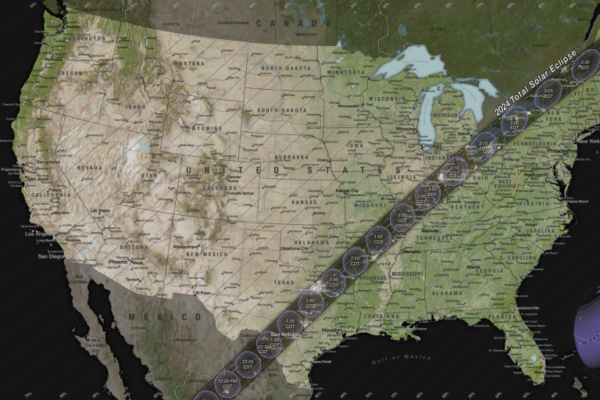Thanks to a partnership between the Austin Parks and Recreation Department and The University of Texas at Austin, Austin residents in all 10 City Council districts will have the chance to experience up-close solar viewings during the Great North American Eclipse on Monday, April 8.
The University is providing eclipse glasses and telescopes with solar filters for independent and guided viewing in select parks between noon – 3 p.m. City officials are encouraging residents to minimize travel and view the eclipse close to their home or workplace due to the expected influx of visitors and the eclipse’s potential impact on traffic April 8.
Learn more about the Austin Parks and Recreation Department eclipse viewing locations at austintexas.gov/parkseclipse.
“This total solar eclipse is a once-in-a-lifetime chance for Austinites to experience being in the path of totality in our city,” said Jessica Gilzow, Culture and Arts Program Manager for the Austin Parks and Recreation Department. “It’s a great reminder that everyone can explore, learn and experience nature and science wherever they happen to be in the city, and that we have a great resource like UT right here in our backyard.”
Austin Parks and Recreation and UT are both members of the Austin Area Eclipse Task Force, a community-based planning group that includes astronomers, museums, educational institutions and other Central Texas organizations hosting eclipse programming in the city.
“We are excited to partner with the City of Austin to enable eclipse viewing in our neighborhoods and Council districts,” President Jay Hartzell said. “The scientists, researchers and other experts at UT are neighbors to the residents of Austin. We want to make sure that the entire city and its visitors benefit from having one of the top astronomy departments and research universities in the world right down the street.”
Visit austintexas.gov/eclipse for official City of Austin viewing information, and UT’s eclipse hub, eclipse.utexas.edu, to read stories and watch videos about the science, history and cultural impact of solar eclipses.




